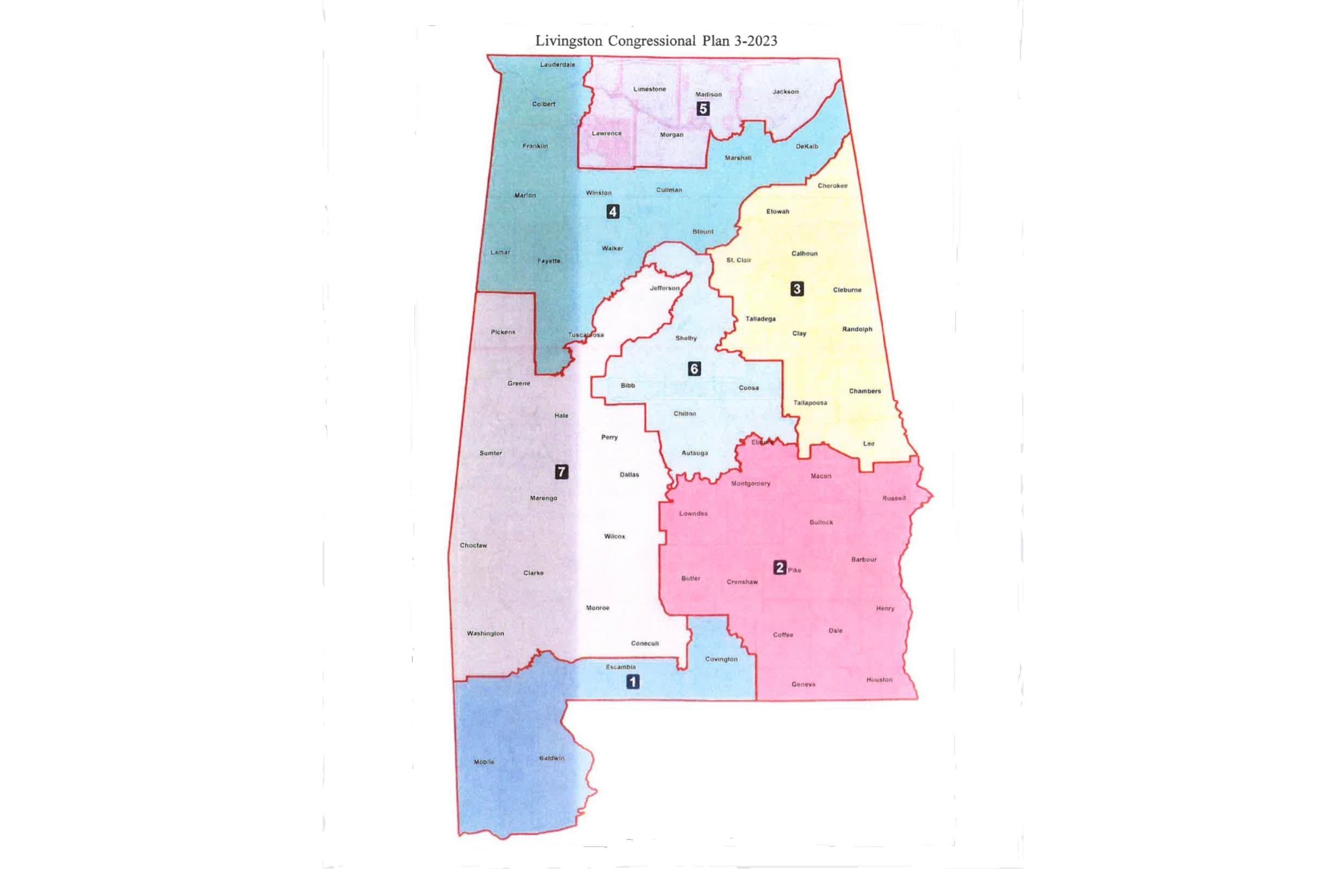A federal court hearing in Birmingham on Monday will decide the fate of a new congressional map for the 2024 election passed by Republicans in the state legislature in July.
A three-judge panel in federal district court in January 2022 found Alabama's congressional map passed in 2021 likely unconstitutional and said a "remedial plan will need to include two districts in which Black voters either comprise a voting-age majority or something quite close to it." The U.S. Supreme Court affirmed the judges' opinion on appeal by the State of Alabama in June.
Under the new map, the seventh congressional district would have a 51% black voting-age population. The second congressional district would lose Autauga County, Conecuh County and parts of Elmore and Covington Counties while adding Lowndes, Macon and Russell Counties. The black voting-age population in the district would increase from 32% to approximately 40%.
Montgomery Mayor Steven Reed and Birmingham Mayor Randall Woodfin, and other black Democrat state and local elected officials said in a filing in the lawsuit on Friday, "Very few candidates of color can be elected in Alabama unless there is a majority of Black voters in the particular district."
"Putting all State legislative districts together, there are currently 138 elected officials serving in these positions (with two vacancies). White elected officials represent every white-majority district except for one, and Black elected officials represent every Black-majority district but one. The same polarization is, of course, true for the current Congressional districts," Denzel Okinedo, an attorney for the group of elected officials, said in the filing.
Republicans insist their plan will hold up in court.
"Far from being contrary to the Supreme Court's ruling, Alabama's 2023 Plan faithfully follows it—and the Plaintiffs' plans disregard it. As just shown, Alabama's 2023 Plan is consistent with a long line of Supreme Court precedents holding that states must not subordinate traditional districting principles to race," Mateo Forero-Norena, an attorney for National Republican Redistricting Trust, said in a brief filed with the court recently. "The Plaintiffs' remedial plans, on the other hand, perform worse when it comes to those traditional principles because they prioritize super-proportional racial representation. As discussed, the State's Plan and the Plaintiffs' plans no longer involve equally "split communit[ies] of interest." The Plaintiffs' plans alone depend on splitting up communities of interest. It is their prioritization of proportional representation over neutral districting principles that defies the Supreme Court."
A federal court hearing with a three-judge panel to decide whether the map passed by Republicans will stand for the 2024 election is set for Monday at the Hugo L. Black Federal Courthouse in Birmingham.
To connect with the author of this story or to comment, email caleb.taylor@1819News.com.
Don't miss out! Subscribe to our newsletter and get our top stories every weekday morning.










